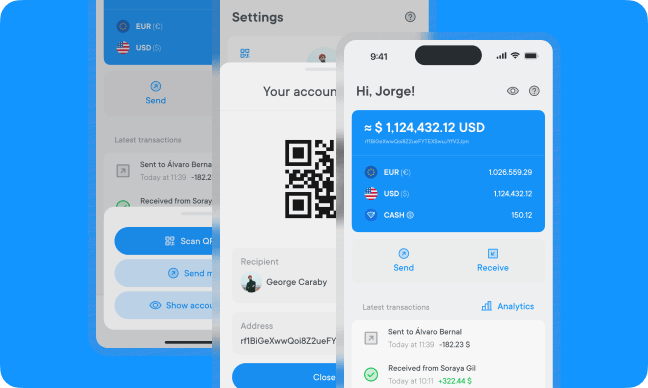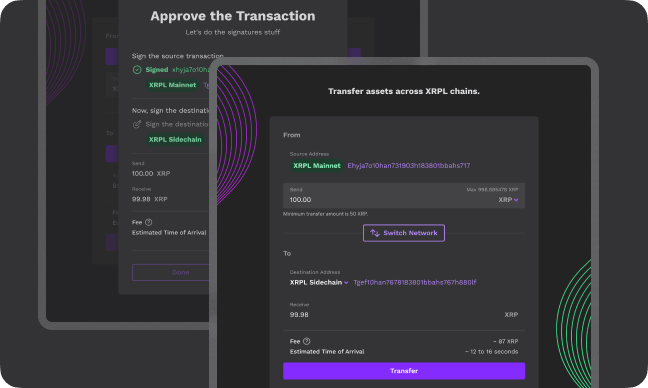Private Networks

The power of Blockchain without giving up control
Numerous public and private institutions are intrigued by the potential benefits of blockchain but harbor concerns about the control and privacy of their data and processes. To reconcile the blockchain advantages with privacy needs, private blockchains emerge as an ideal solution.
They offer the core blockchain characteristics—decentralization, immutability, and transparency—while addressing concerns about scalability, privacy, and control.
Consequently, private or enterprise blockchains are increasingly recognized as an integral part of the digital transformation journey for businesses navigating the balance between innovation and organizational requirements







What is a private Blockchain
A private blockchain is a restricted network where only authorized entities can participate, providing an enhanced level of privacy and security. As the most exclusive subset of permissioned blockchains, it’s typically governed by a single organization with authority over transaction validation, consensus rules, and network maintenance. It’s specifically designed to enable secure data sharing, transparent record-keeping, and streamlined operations within a closed ecosystem, while retaining complete control over who can access and participate in the network.
Consortium Blockchain
A consortium blockchain represents a middle ground between private and public blockchains. It is semi-private, with the control of the blockchain network shared among a group of trusted organizations. Each member has specific rights and responsibilities within the network, bringing together multiple stakeholders to gain the benefits of decentralization without complete openness. Consortium blockchains are popular in industries where collaboration is necessary, such as finance, supply chain, or healthcare, as they offer shared control, transparency, and reduced risk of single-point failure.
Network Incentives in Private Blockchains
In public blockchains, mining or staking rewards incentivize participants to validate transactions and maintain network security. However, private blockchains operate differently. They are administered by trusted entities who bear the responsibility of validation. Therefore, they don’t require the use of rewards to incentivize participation. Instead, the incentive to participate in a private blockchain is typically the mutual benefit of the shared, immutable record of data and transactions, enhancing transparency and collaboration among the involved parties.
Scalable and Sustainable
Private blockchains offer an effective solution to scalability and sustainability issues often associated with public blockchains. With the ability to process a high volume of transactions per second, private blockchains efficiently balance the innovative benefits of blockchain technology with the demands of large-scale operations. Furthermore, their architecture eliminates the need for energy-intensive mining processes, making them a more environmentally friendly choice. By adopting private blockchains, organizations can leverage blockchain’s potential in a scalable, sustainable manner, aligning with the goals of resource efficiency and environmental responsibility.

Peersyst & Private blockchain
Implementing CBDCs is a complex yet rewarding endeavor, requiring a deep understanding of blockchain technology and the intricate workings of the public sector. At Peersyst, we not only grasp these complexities but also have real-world experience in executing successful CBDC pilot projects in collaboration with public sector entities.
We appreciate the significant responsibility central banks carry, and we are dedicated to navigating the regulatory challenges and ensuring the seamless integration of CBDCs into the existing financial ecosystem. Join us in charting the future of finance.
The future is digital. The future is CBDCs. Let Peersyst guide you on this transformative journey.
Identity Verification
Private blockchains are ideally suited for identity verification, providing secure and tamper-proof records. This ensures dependable authentication and keeps privacy as a paramount concern.
Supply Chain Management
Private blockchains in supply chain management offer real-time tracking, reduce fraud, and ensure transparency, greatly optimizing logistics and product authentication while keeping the information private.
Healthcare
Private blockchains in supply chain management offer real-time tracking, reduce fraud, and ensure transparency, greatly optimizing logistics and product authentication.
Financial Services
In financial services, private blockchains streamline transactions, enhance security, and improve compliance with regulations, offering a private and trustworthy platform for sensitive financial data.
Private Blockchain FAQs
Quick answers to questions you may have.
What are the benefits of using a private blockchain?
Private blockchains offer the core benefits of public blockchains, such as security and immutability, but with enhanced privacy, scalability, and customization. They are better suited for tailored enterprise solutions that require control over access and data privacy.
What are some common use cases for private blockchains?
Typical use cases include identity verification, financial transactions, healthcare data management, and supply chain tracking, where enhanced privacy and security are crucial.
Do private blockchains use consensus algorithms?
Although private blockchains utilize consensus mechanisms, the types of consensus algorithms they use can differ from those used in public blockchains. These often forgo the use of rewards, operating under the assumption that the majority of nodes are inherently motivated by the network’s efficient management.
What are the main drawbacks of private blockchains?
Private blockchains typically don’t use rewards like mining in public blockchains. They rely on trusted validators, removing the need for incentivization mechanisms.


